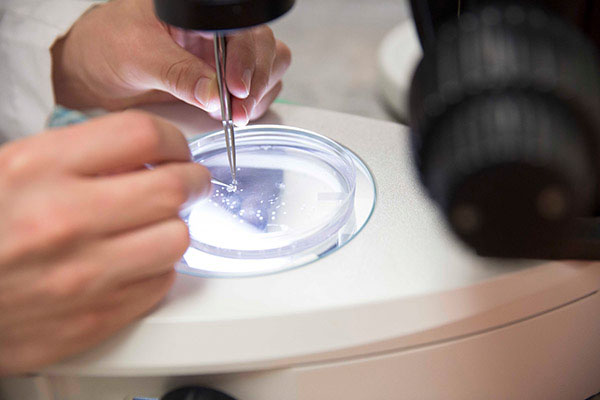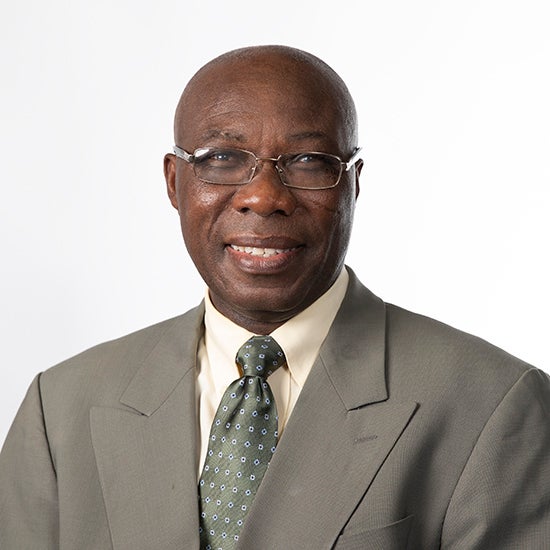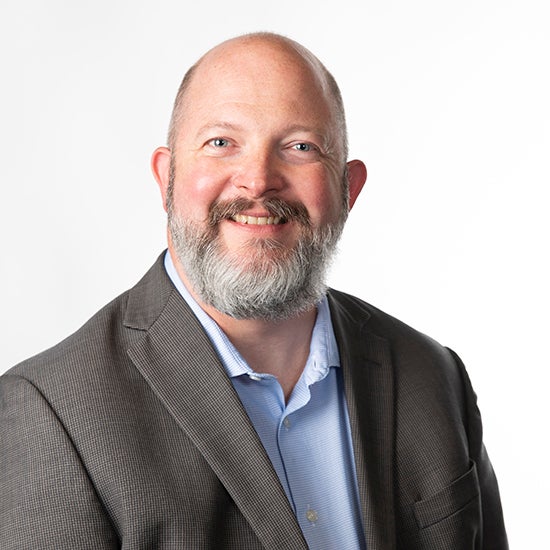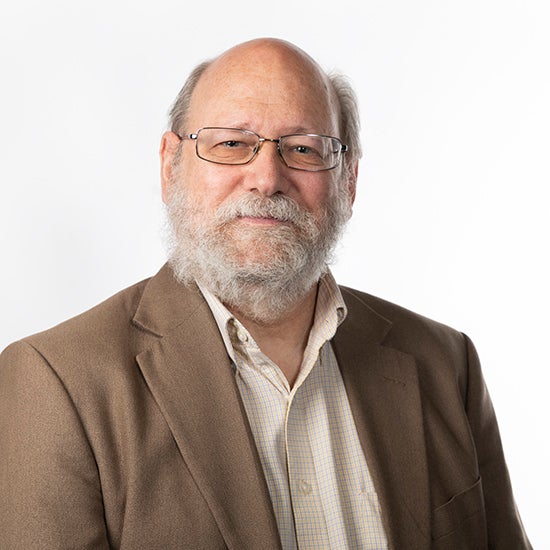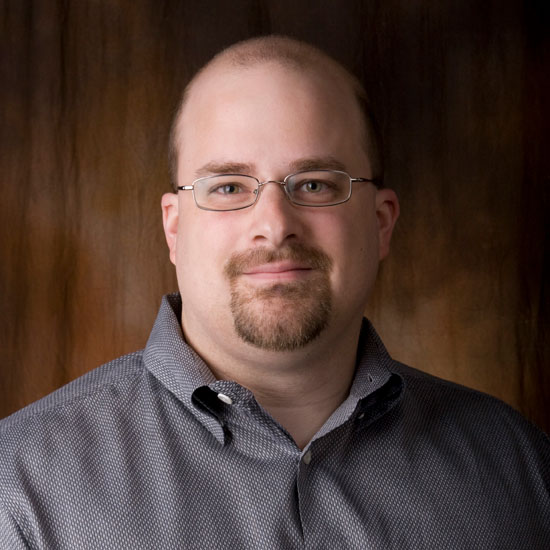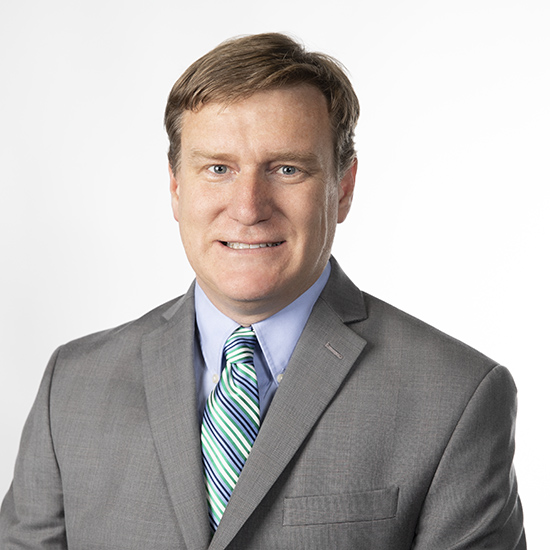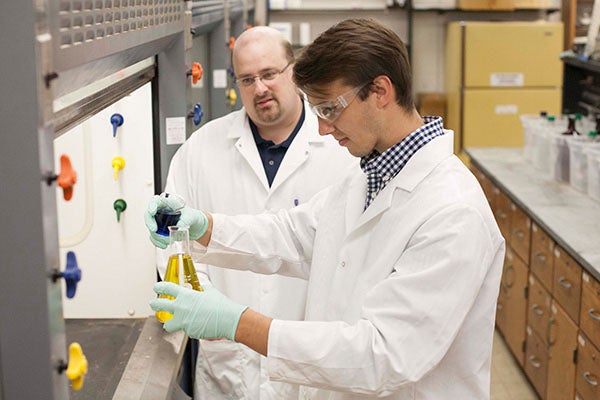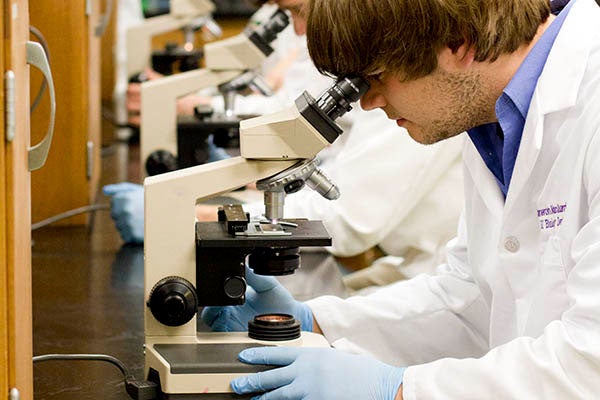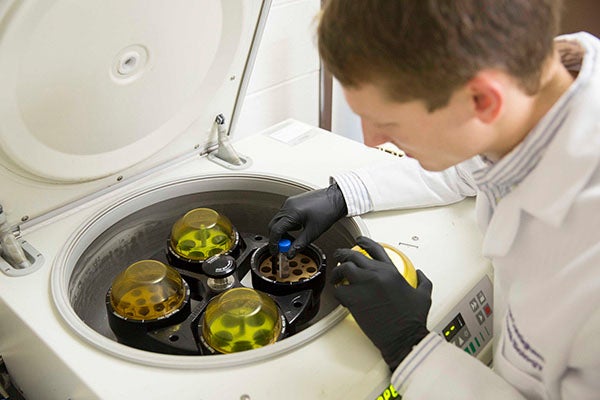Program Overview
Biochemists use the principles of chemistry and apply them to biological systems. Much like the Chemistry major, our Biochemistry program offers students a comprehensive education spanning vital chemistry domains, including organic, inorganic, physical, biological and analytical chemistry. However, our program distinguishes itself by providing an even more extensive and profound training in the biological applications of chemistry. Our curriculum empowers students with a robust foundation in both chemistry and biology, nurturing their expertise in this interdisciplinary field.
While anyone can choose a Biochemistry major, it is primarily intended for students interested in pursuing graduate school in biochemistry with the goal of becoming a biochemist or professor.
Biochemistry for Health Professions
If you are interested in going to a professional school such as medical, pharmacy, dental, physician’s assistant, physical therapy, or other health-related areas, then Biochemistry for Health Professions is a degree tailored to that career trajectory.
Intended to cover prerequisites to most professional schools, the Biochemistry for Health Professions degree plan will offer a robust training in chemistry and biology to prepare you for future training in health-related careers.
Our Faculty
Career Paths
Biochemists and Biophysicists
Biochemists and Biophysicists study the chemical and physical principles of living things and of biological processes, such as cell development, growth, heredity, and disease.
Medical Scientists
Medical scientists conduct research aimed at improving overall human health. They often use clinical trials and other investigative methods to reach their findings.
Pharmacists
Pharmacists dispense prescription medications to patients and offer expertise in the safe use of prescriptions. They also may conduct health and wellness screenings, provide immunizations, oversee the medications given to patients, and provide advice on healthy lifestyles.
